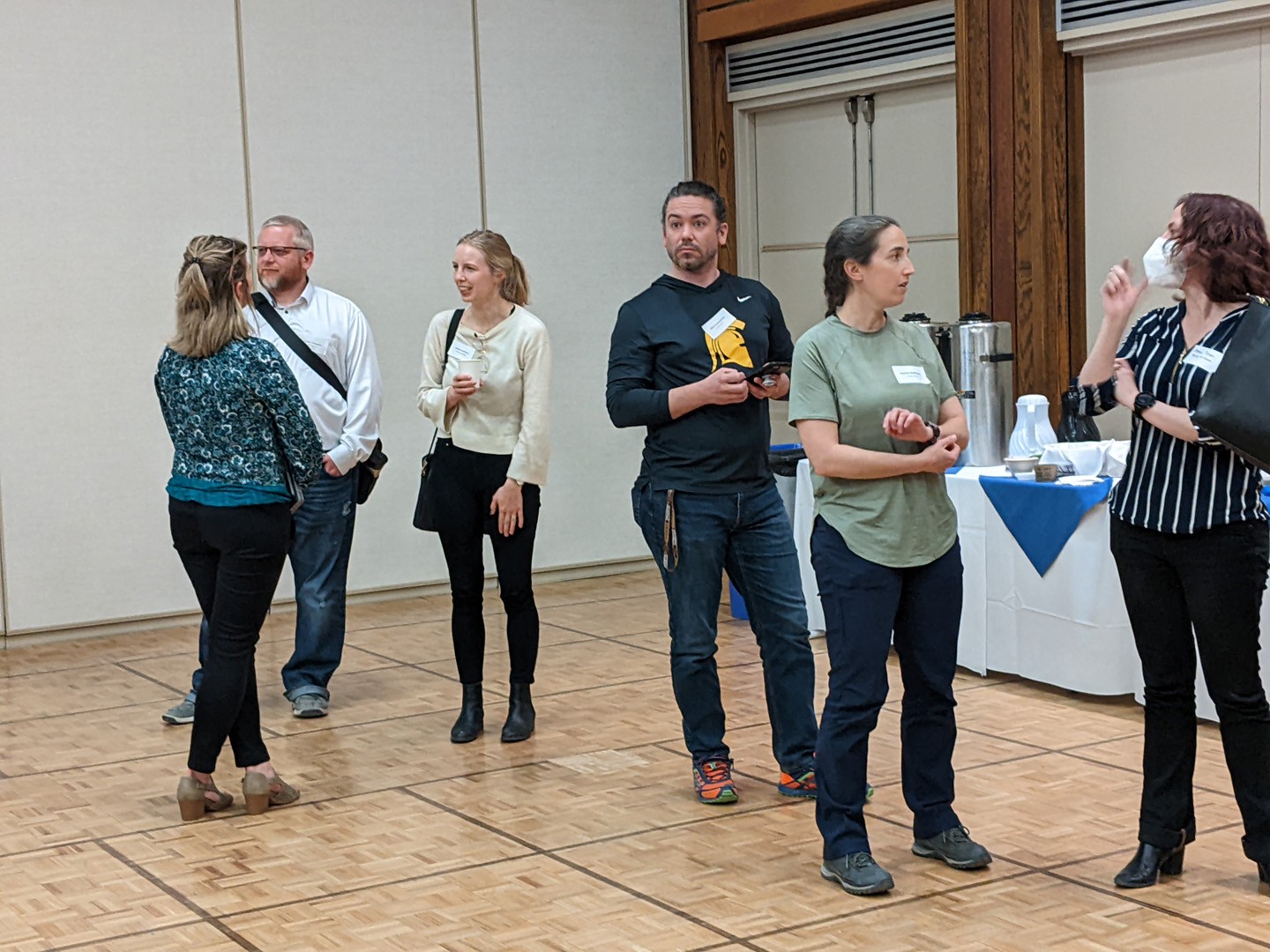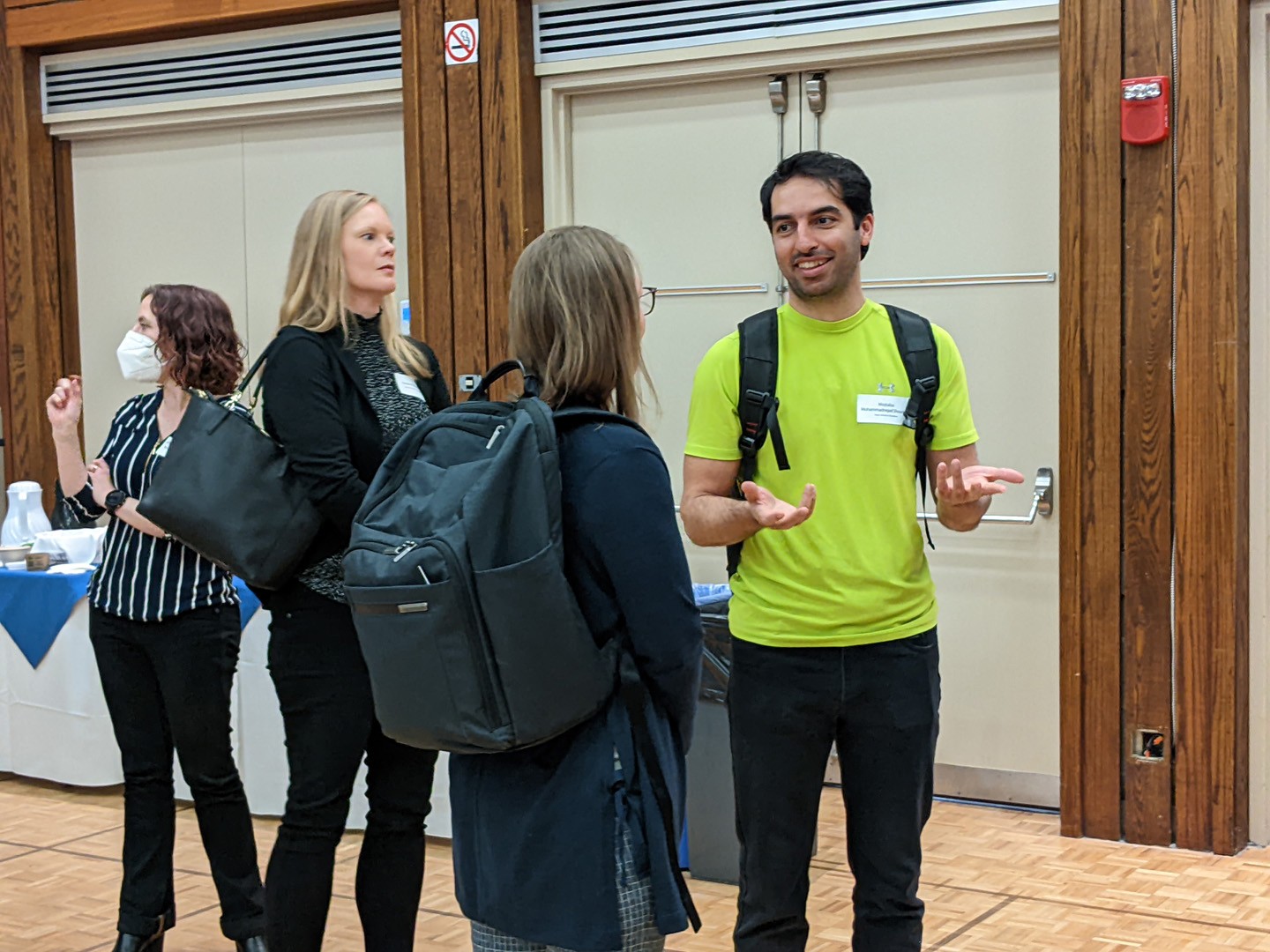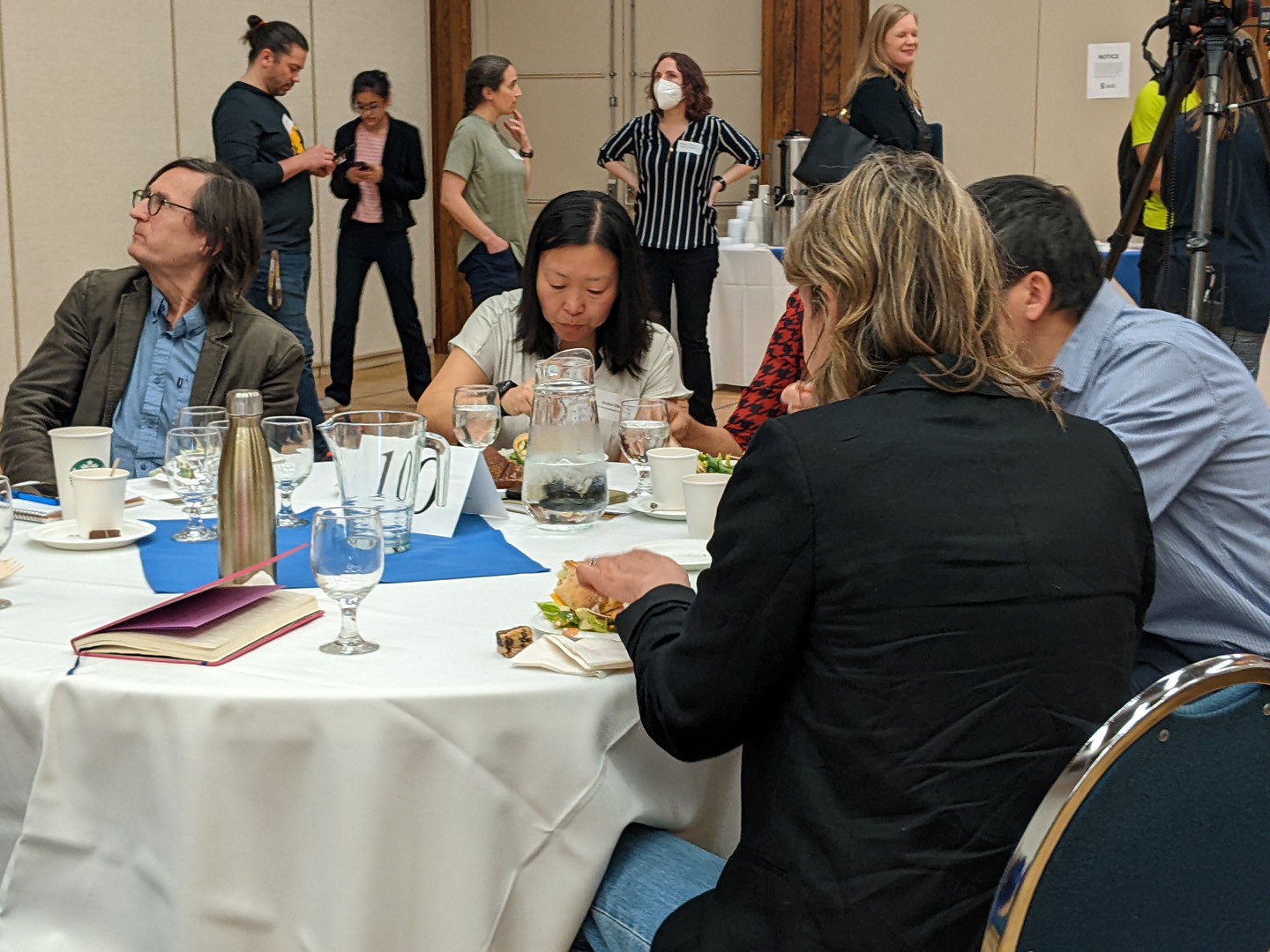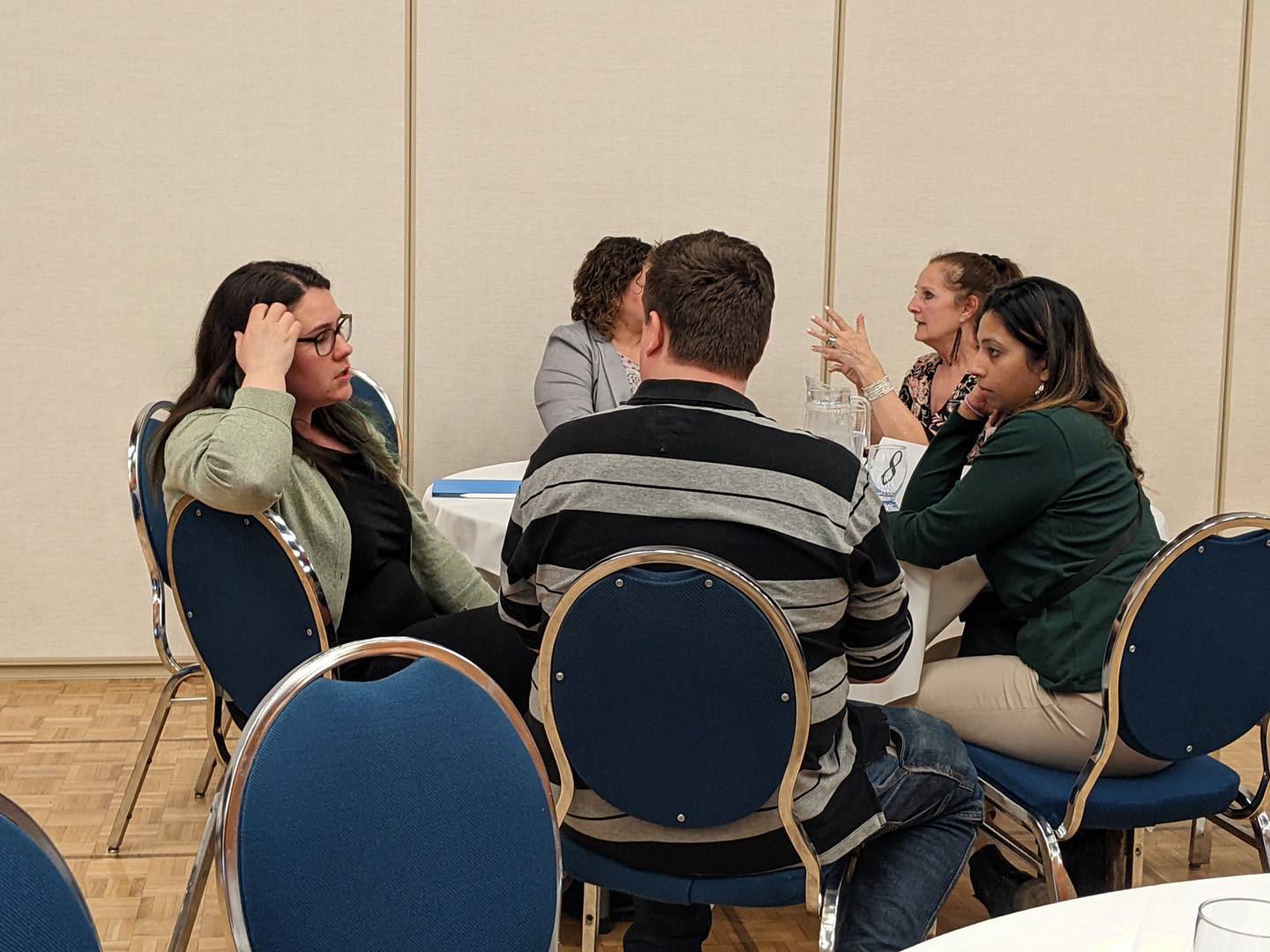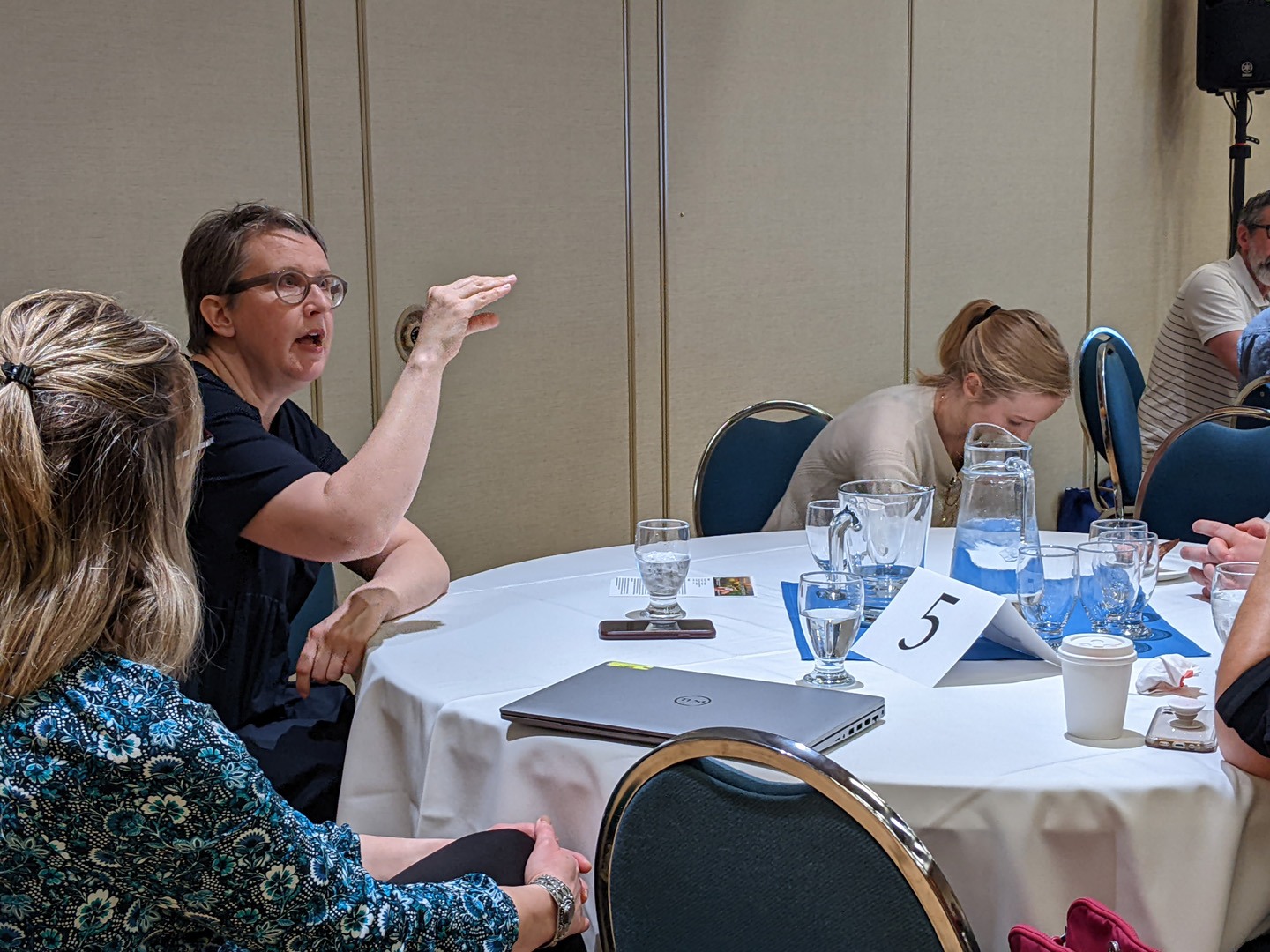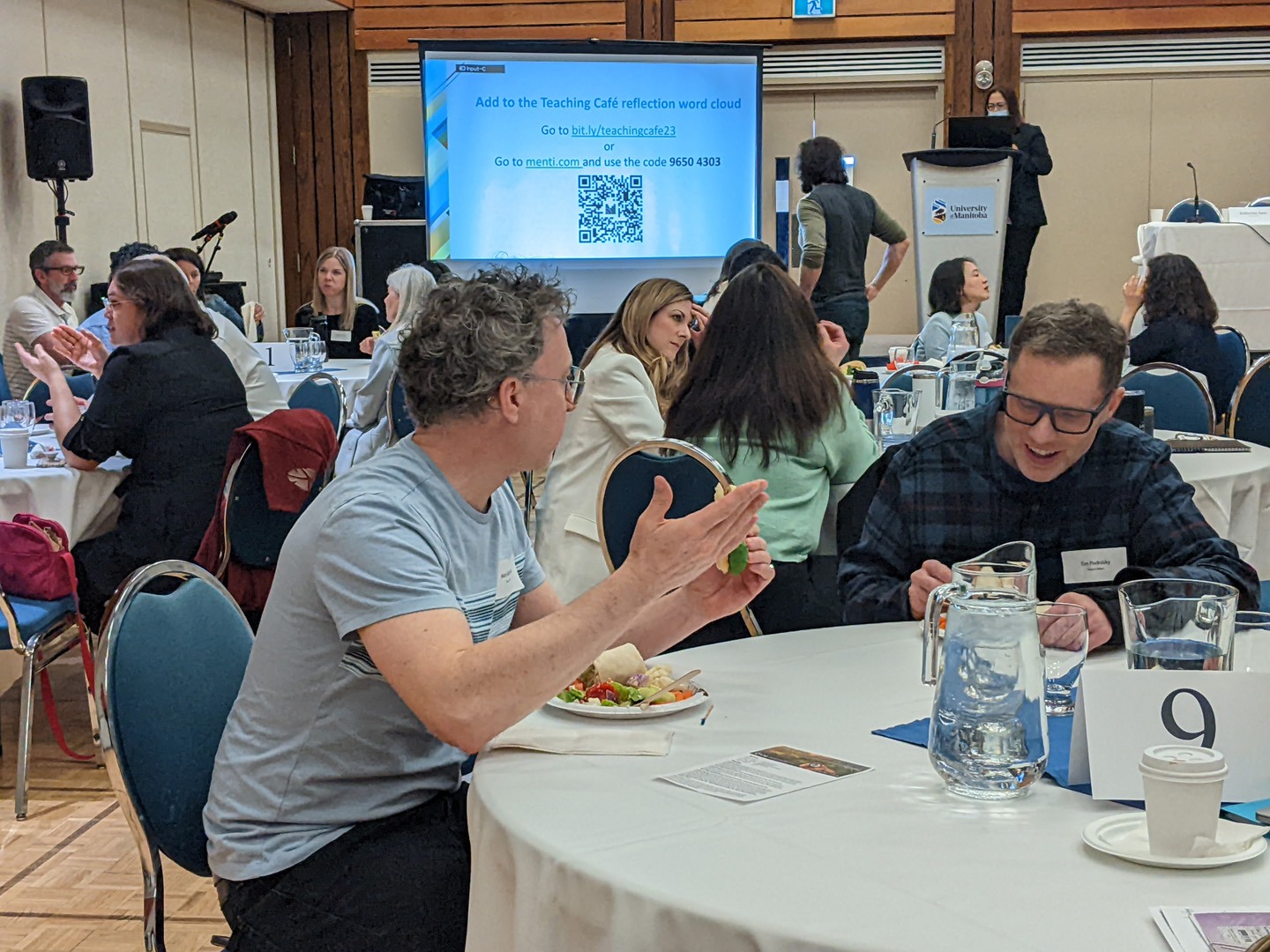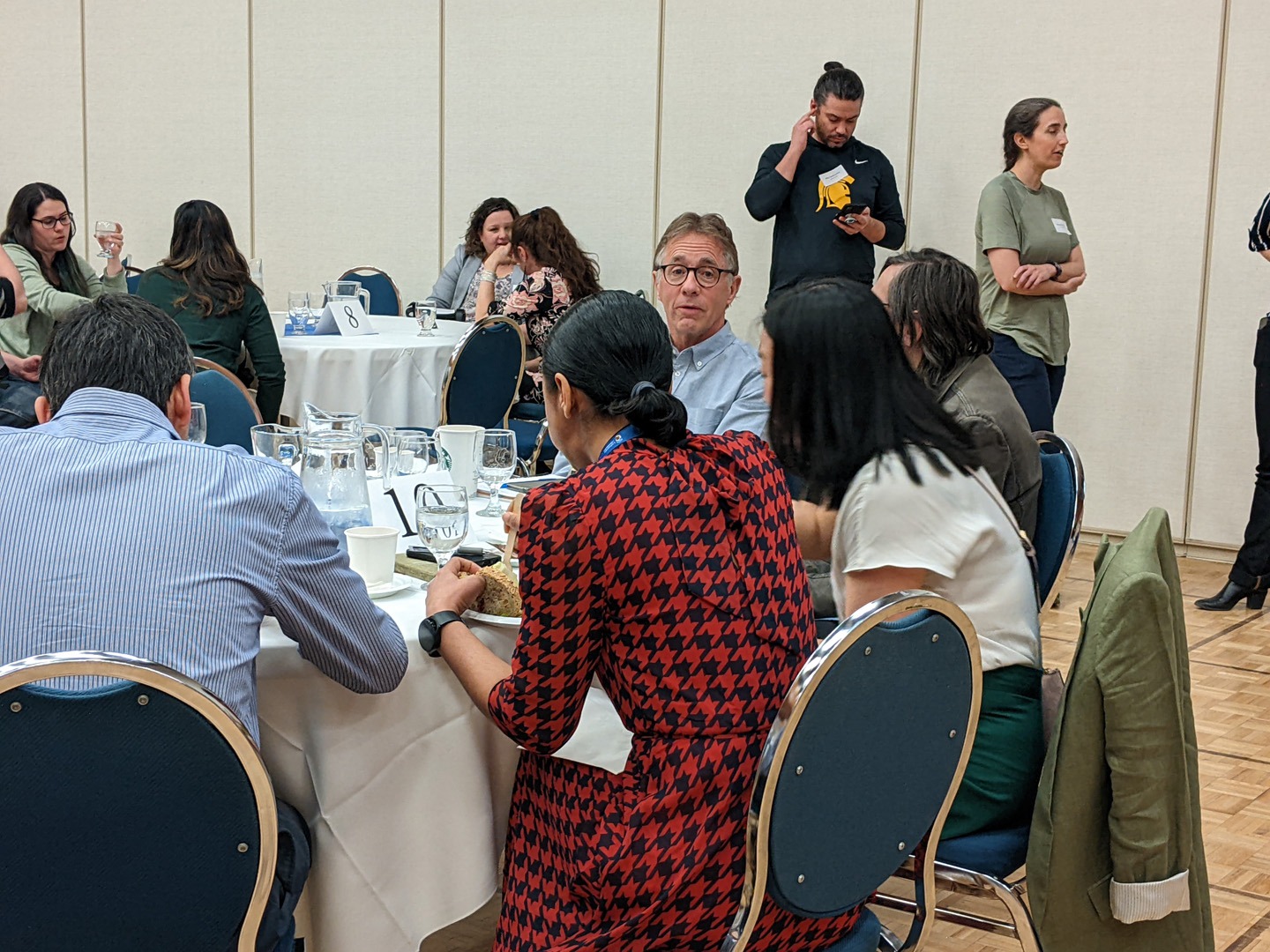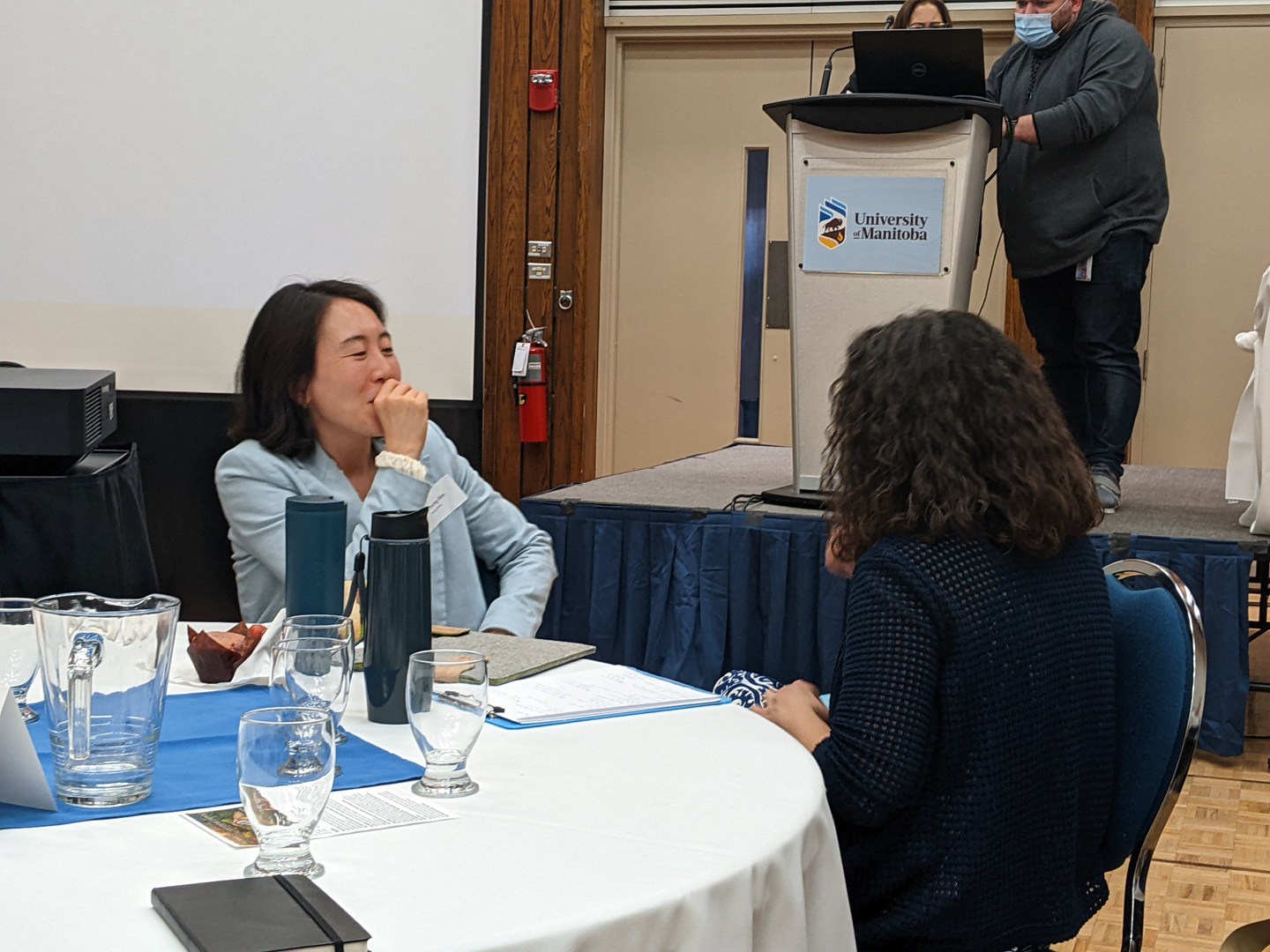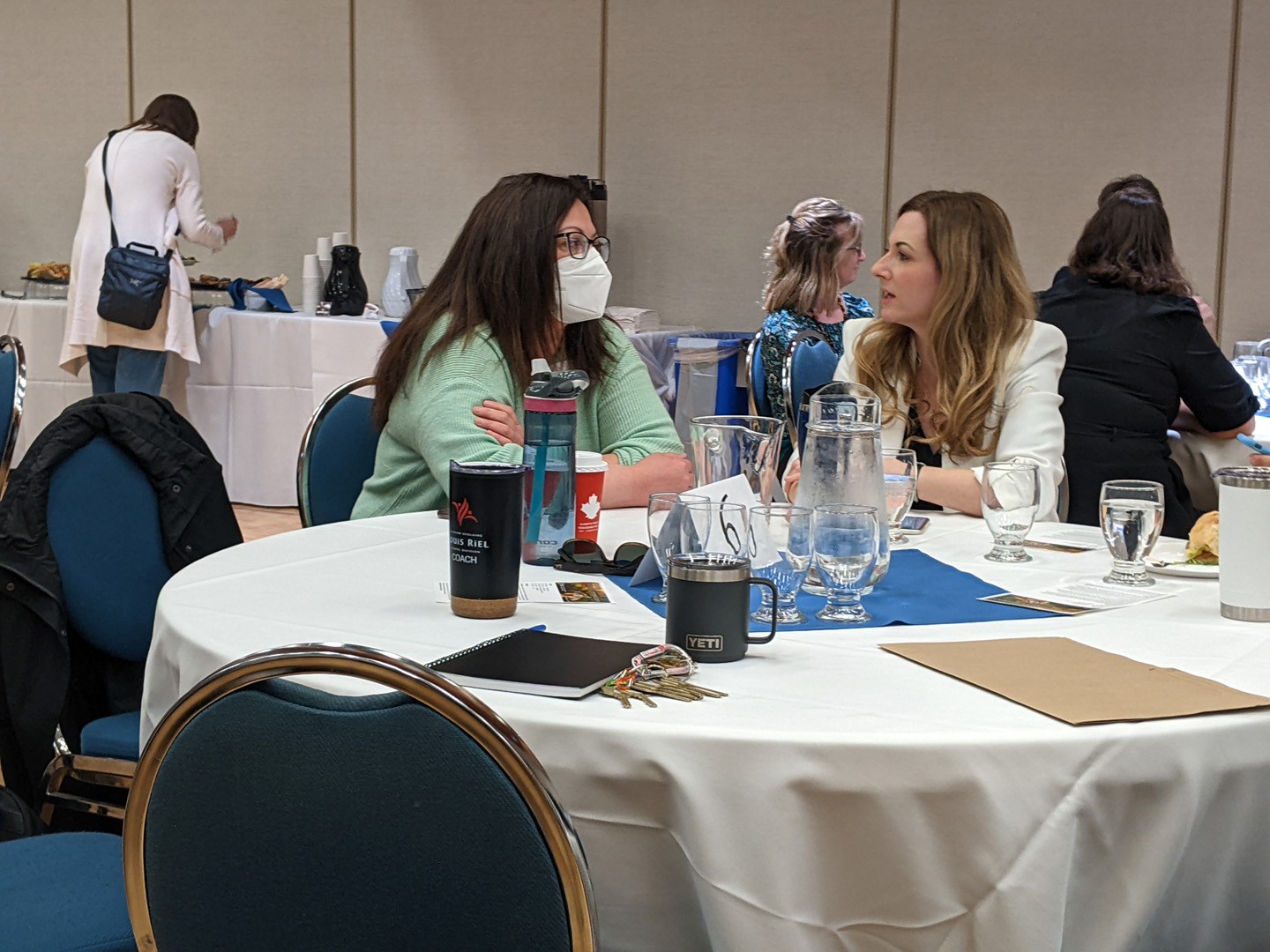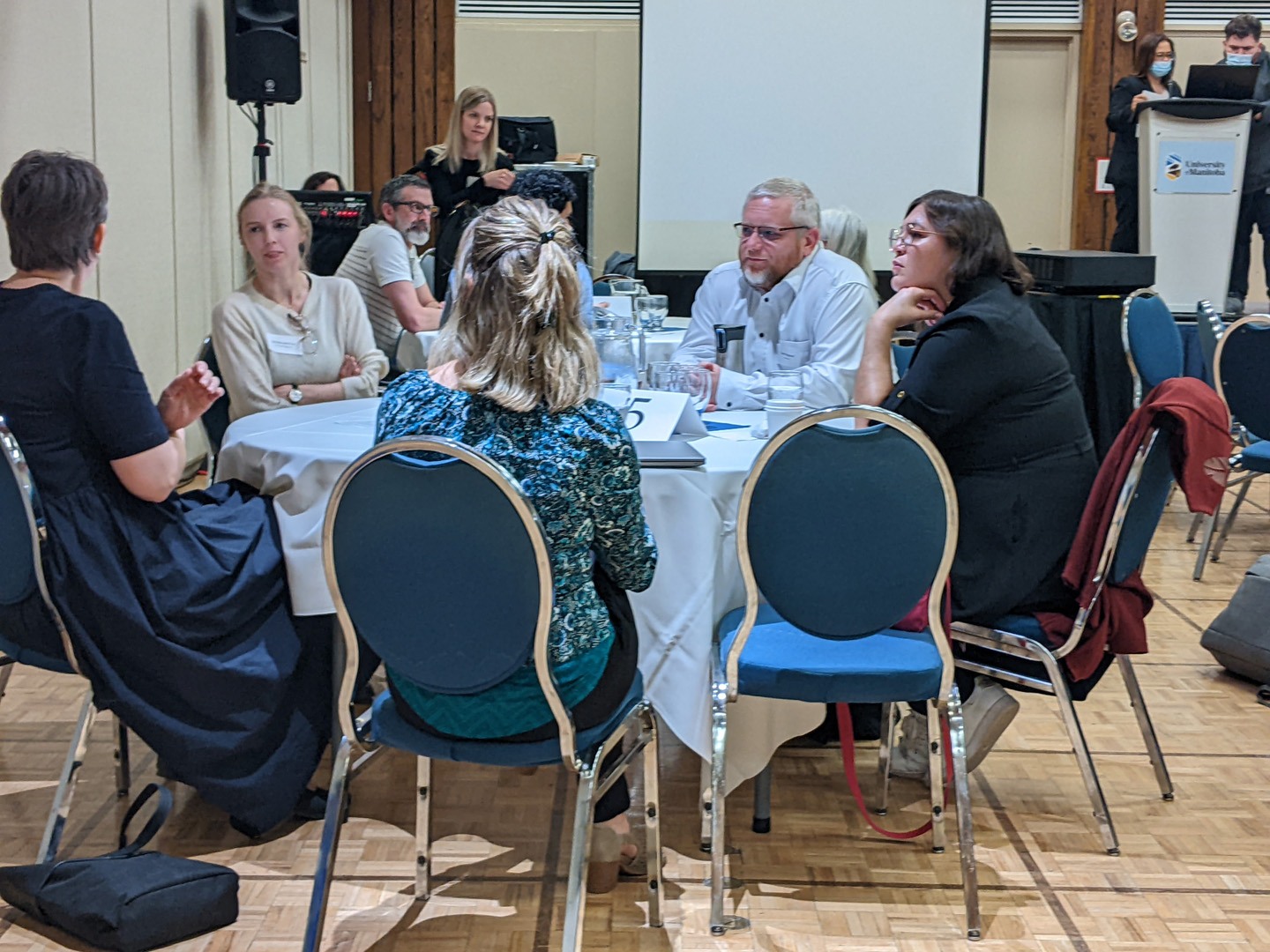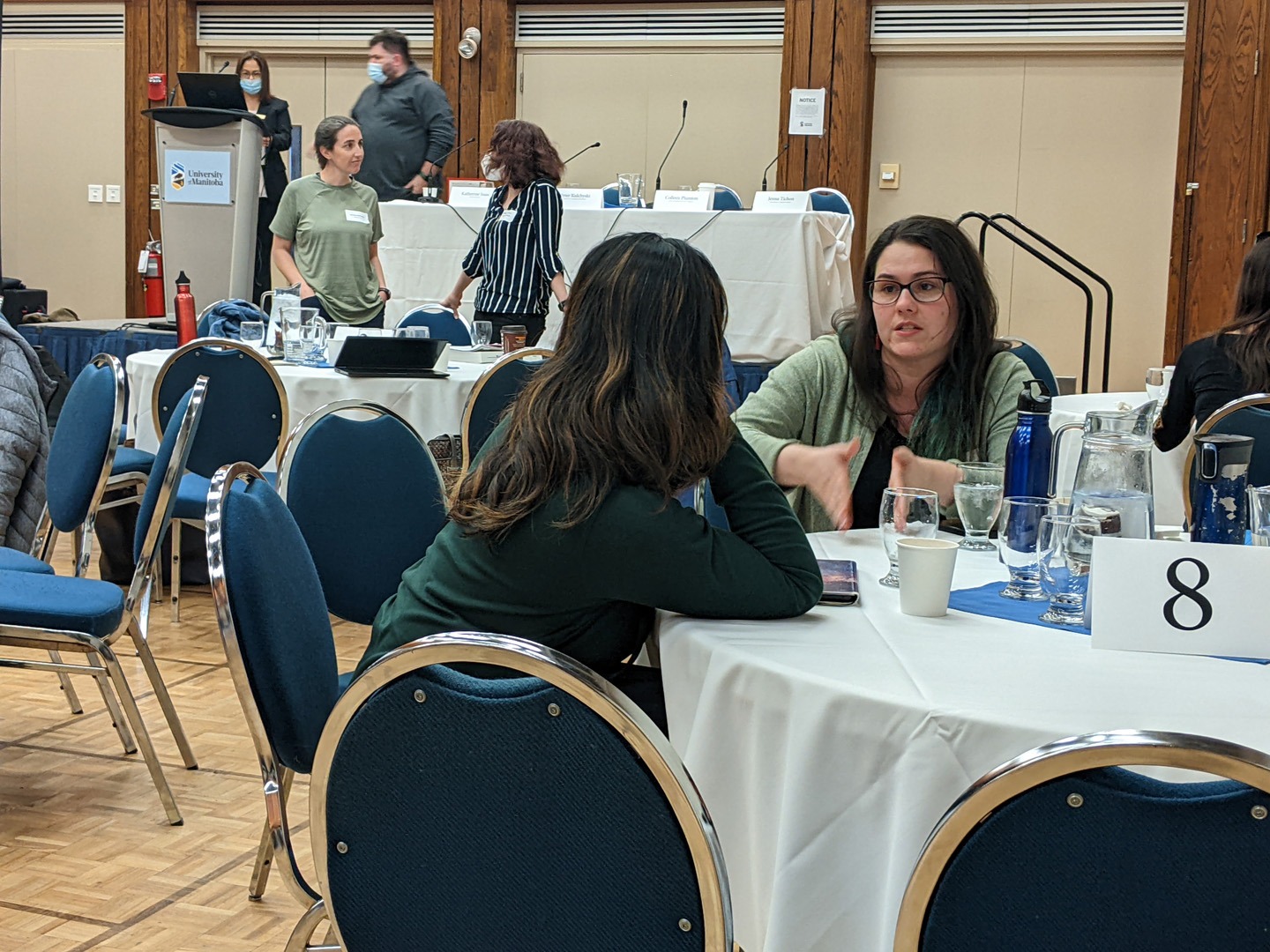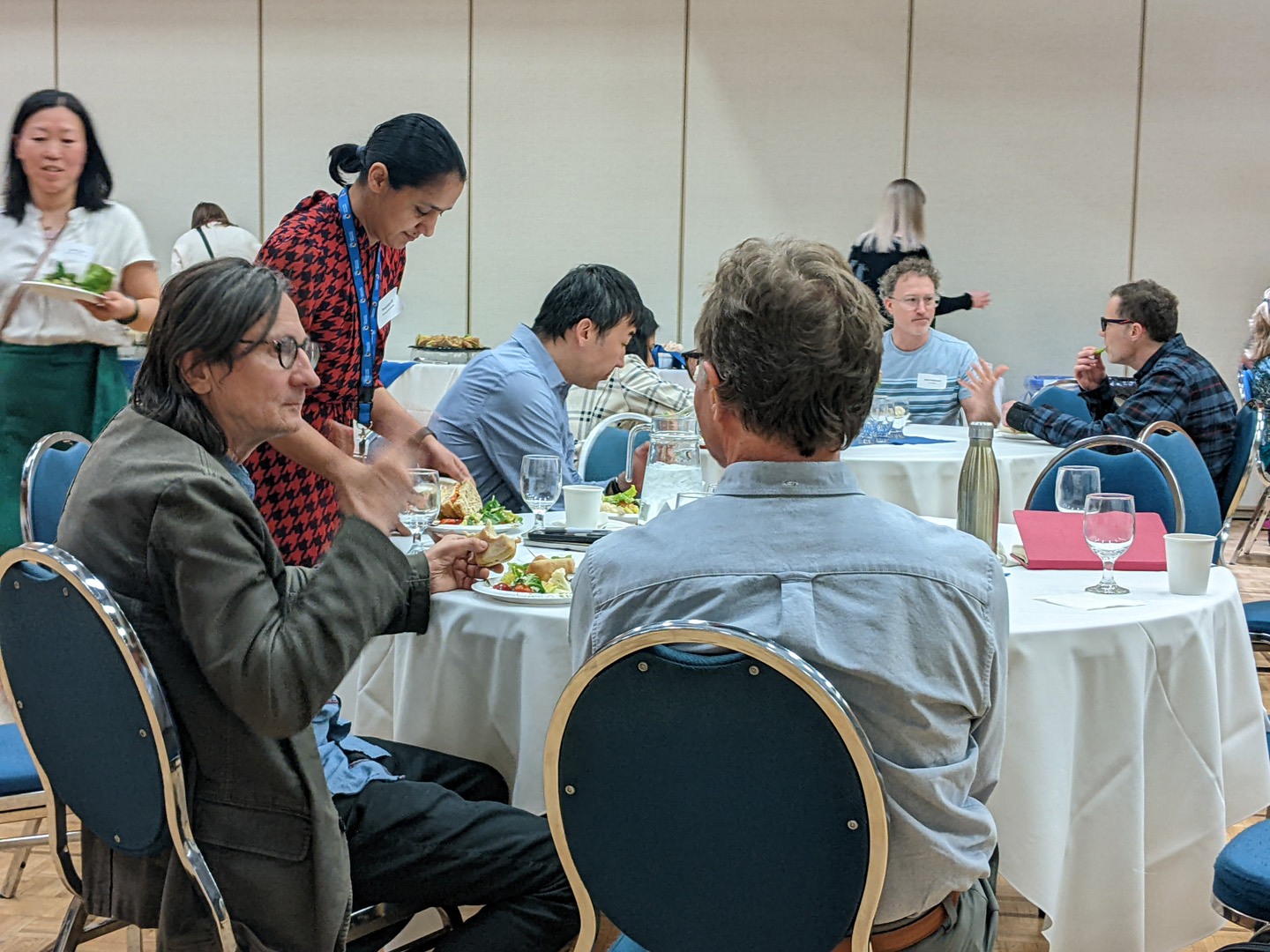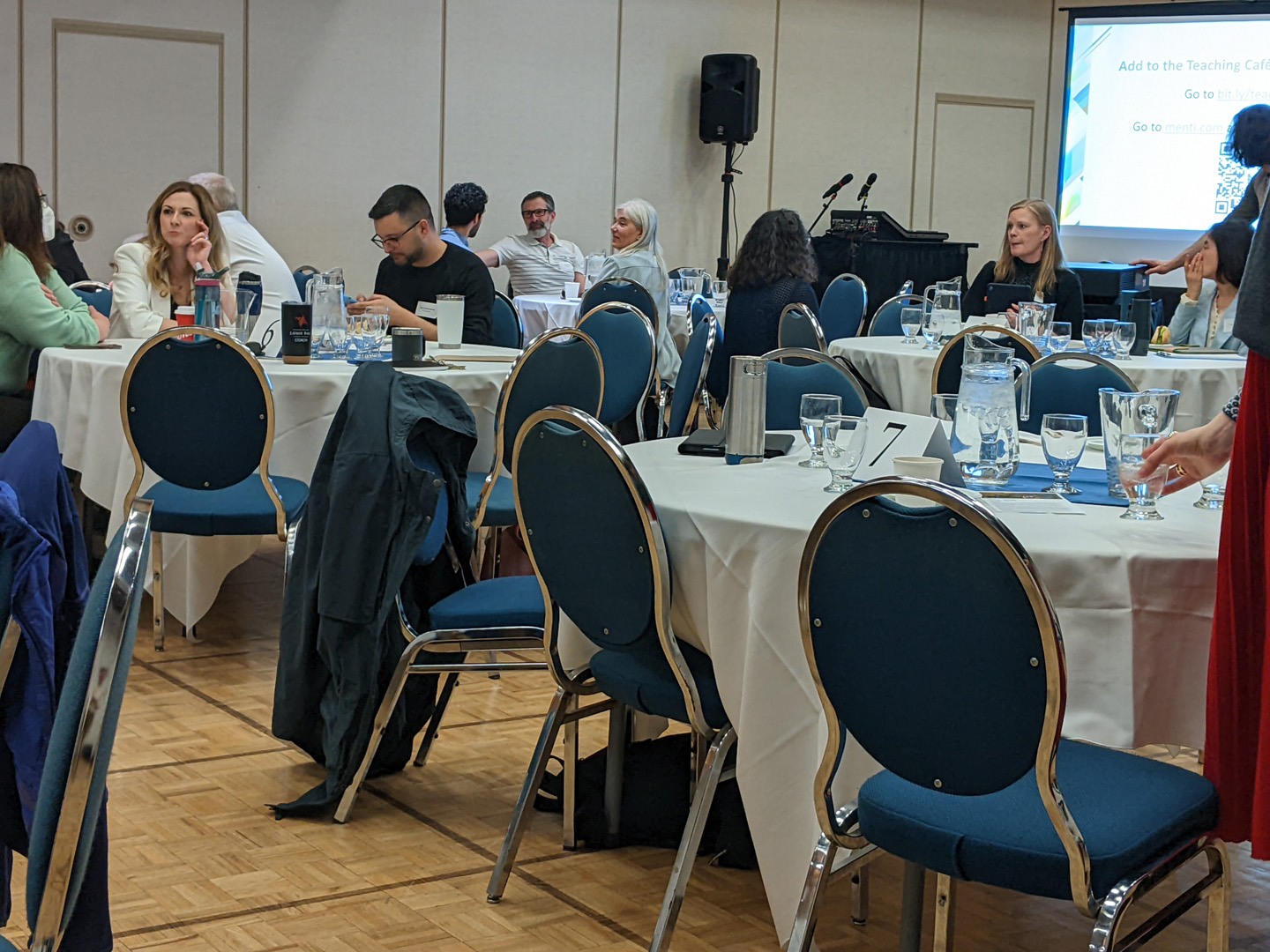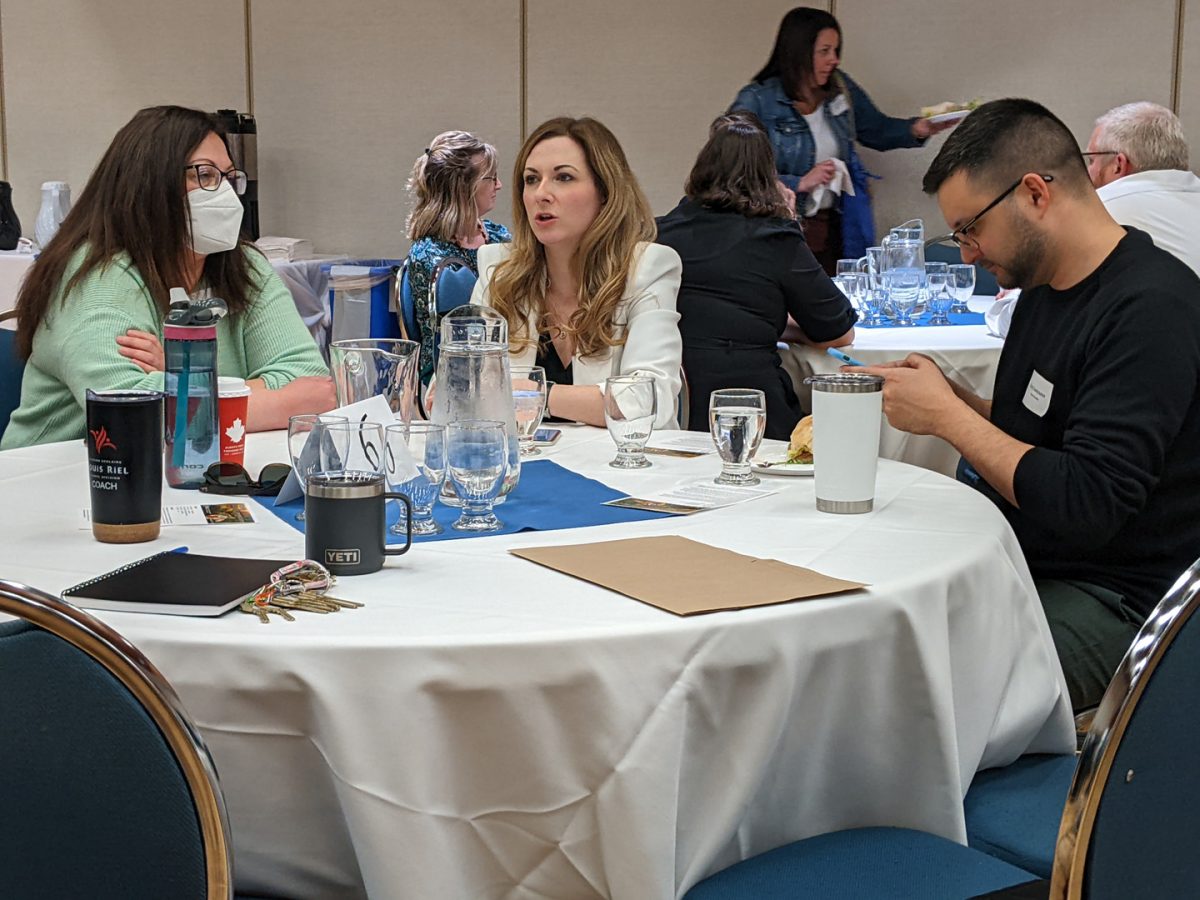
Attendees at the May 3 Teaching Café
You can do it! Empowering students through experiential learning
Teaching Café panel shares their best advice
The benefits to students of experiential learning are known to be wide-ranging and life changing. At this year’s May 3 Teaching Café, “Journeys into Experiential Learning,” four UM panelists shared a variety of time-tested approaches that empower students, provide them with autonomy and real-world skills, and help them to recognize and reflect upon failure as a valuable learning tool.
A safe place to make mistakes
Giving students a safe space to take on real-world challenges is key for Instructor Katherine Isaac in the Faculty of Architecture’s Environmental Design program. In her Professional Practice course, students create a “request for proposal” (RFP) for an architecture project; they then role play and become the client who is receiving the RFP. This self- and peer-evaluation exercise allows learners to identify the strengths and weaknesses of their work “and to have reality-based conversations,” she says.
Instructor Jenna Tichon, whose statistics classes in the Faculty of Science are often large, shared how she has scaled up experiential learning techniques and uses authentic assessment and student self-reflection to help her learners succeed.
“I value that in university and science, people are able to say, ‘I think I’m making a mistake, I did something wrong, there might be an issue here.’” She believes that if that opportunity isn’t built into the learning experience, “the consequences of people not being able to speak up can be incredibly severe.”
Stepping outside one’s comfort zone
Encouraging students to overcome their reticence has been rewarding for Professor Peter Kulchyski of the Department of Indigenous Studies. His six-week “bush school” in Pangnirtung on Baffin Island is land-based education and community-based learning at its most challenging.
“I’m very deliberate about working with communities and seeing them differently,” he says. Students are encouraged to look for community strengths and avoid colonial-based thinking. His visitors are to be mindful of three things when interacting with community members: impacts on the learner, impacts on the setting being learned in and impacts on those who might receive the learners during the experience.
We are ‘doing beings’
Senior Instructor Colleen Plumton in the Faculty of Kinesiology and Recreation Management has been a proponent of experiential learning for more than 20 years, and she has seen how it can ignite students’ curiosity as a result. For those looking to try it, she says, “It comes from believing in our students and ourselves. Our students want this. Remember that we are doing beings, we are not sitting beings.”
She encouraged instructors to seek out the help available through the Centre and the Office of Experiential Learning. “We have a collection of humans to support one another.”
Compelling stories and useful advice
Attendee Mona Maxwell, Education Developer with the Centre, summed up the value of hearing the panel’s collective knowledge. “I left feeling secure that the enduring impact that a well-crafted experiential learning activity can have on a learner justifies the extra effort and risk-taking needed to overcome the barriers to creating them,” she says. “The panel convinced me that experiential learning binds our discipline content and lifts it off the pages of the text, while creating learners who appreciate the autonomy, self-growth and sense of accomplishment of their experiential learning experience for years to come.”
Since 2017, the Centre for the Advancement of Teaching and Learning has hosted an annual Teaching Café to celebrate teaching innovation at the university. UM educators share their teaching strategies and discuss, in a roundtable format, the lessons they have learned. The Café is open to all UM faculty and instructors, and lunch is provided.
Learn more
Learn more about the Teaching and Learning Certificate.
Learn more about experiential learning.







